From pv magazine 06/2020
Thermal batteries are a relatively new technology that can provide an alternative energy solution in the form of heat storage. As the world’s energy consumption continues to increase, thermal batteries could become an integral part of a more sustainable future, providing a source of energy without an associated increase in fossil fuel use. This technology can help companies achieve operational savings by generating higher amounts of energy from the same sources, whether generated from renewable sources or fossil fuels. TESS allows users to capture and use what would otherwise be wasted heat from their energy-generating systems and processes, and use it to boost productivity and energy efficiency.
Originally designed for use in concentrating solar-thermal power facilities, TESS is significantly more efficient and flexible than other thermal batteries currently on the market. Researchers have previously tried to use phase-change materials to store heat, which cycle back and forth between liquid and solid as heat is added and removed. These materials, usually salts, are great at retaining heat, but typically take a long time to charge and release heat. TESS solves this problem by infusing the phase-change material in a porous and highly thermally conductive foam core, allowing the system to store and release heat quickly. TESS operates at nearly 95% efficiency.
“One of the big advantages of our technology is that it’s modular, so you don’t need a huge storage structure,” said Dileep Singh, a senior materials scientist at Argonne who led the research team that developed TESS. With each unit the size of a kitchen garbage bin, the TESS units can be combined just like traditional batteries to tailor the system to the user’s requirements. “You can install them in whatever number you require to meet your heat-storage needs.”
Application advantages
TESS’s modularity and tunability allow it to be scaled up or down to meet the needs of many commercial applications, such as combined heat and power systems, power plants, heavy-duty trucks, building heating and cooling systems, or thermal desalination plants. Concentrating solar-thermal power plants may someday benefit from this new technology by capturing excess heat during the day to keep the power plant running through the night and on cloudy days.
TESS has been shown to operate efficiently across a wide range of temperatures. It runs smoothly at temperatures over 700 C and can even be used at low temperatures to store cooling power instead of heat. The foam core infused with the phase-changing material is sealed inside a module with inert gas, which prevents moisture or oxygen from degrading the components. TESS has been shown to maintain performance over numerous charge and discharge cycles.
The technology has the potential to be combined with traditional batteries to form a hybrid thermal-electrical energy storage system for use in PV plants, as well as for systems in residential and commercial buildings.
Using electric batteries for energy storage can be prohibitively expensive for some applications; integrating TESS as part of an energy storage solution can provide a cost-effective option. Such a hybrid thermal-electrical energy system may present a good option to provide both heat and power for facilities operating off the electric grid.
The recipient of a 2019 R&D 100 award for innovations in materials design, TESS has been extensively tested in the laboratory. It has been demonstrated to work effectively in concentrating solar-thermal power systems, and is currently available for licensing and commercial development.
About the author
Liz Thompson has spent her career communicating science to the public, working for a variety of universities and nonprofit organizations including Stanford, UNESCO, the Marine Conservation Institute, and Caltech. She won the 2019 CASE Circle of Excellence award for “Best Annual Magazine” as the editor of Techer, Caltech’s alumni magazine.
This content is protected by copyright and may not be reused. If you want to cooperate with us and would like to reuse some of our content, please contact: editors@pv-magazine.com.
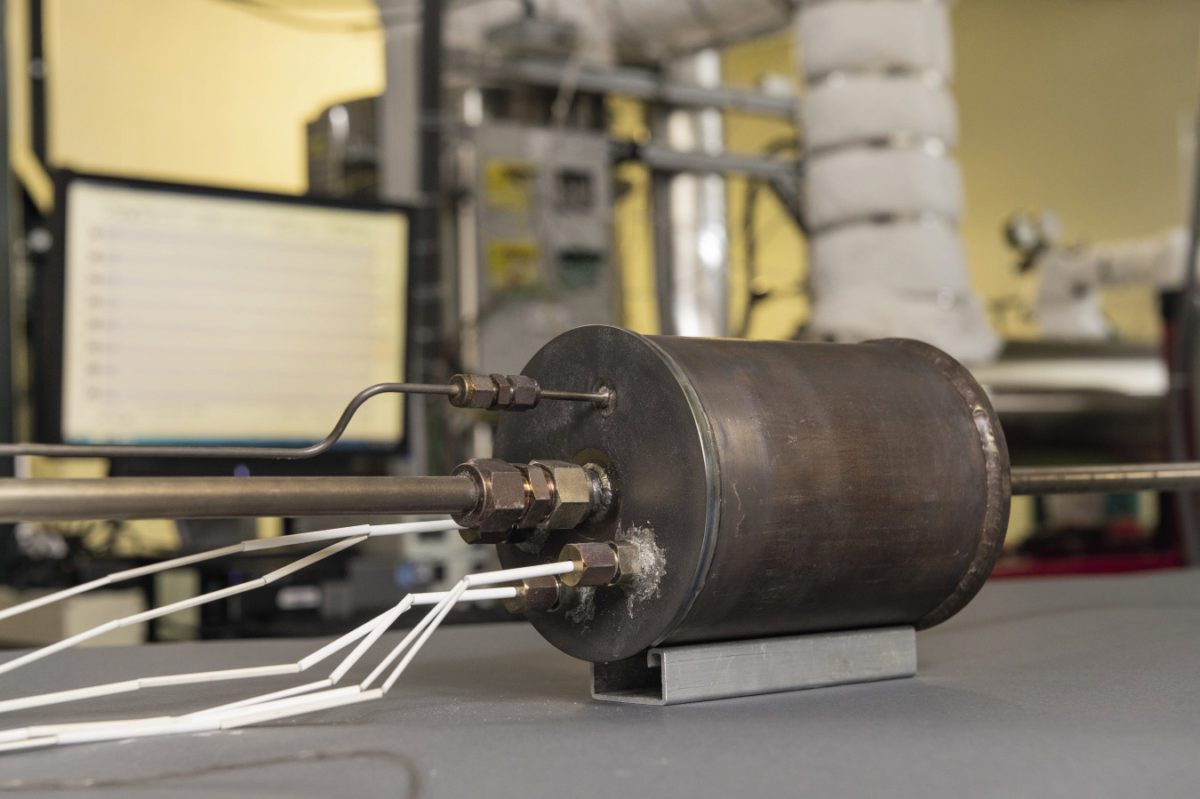
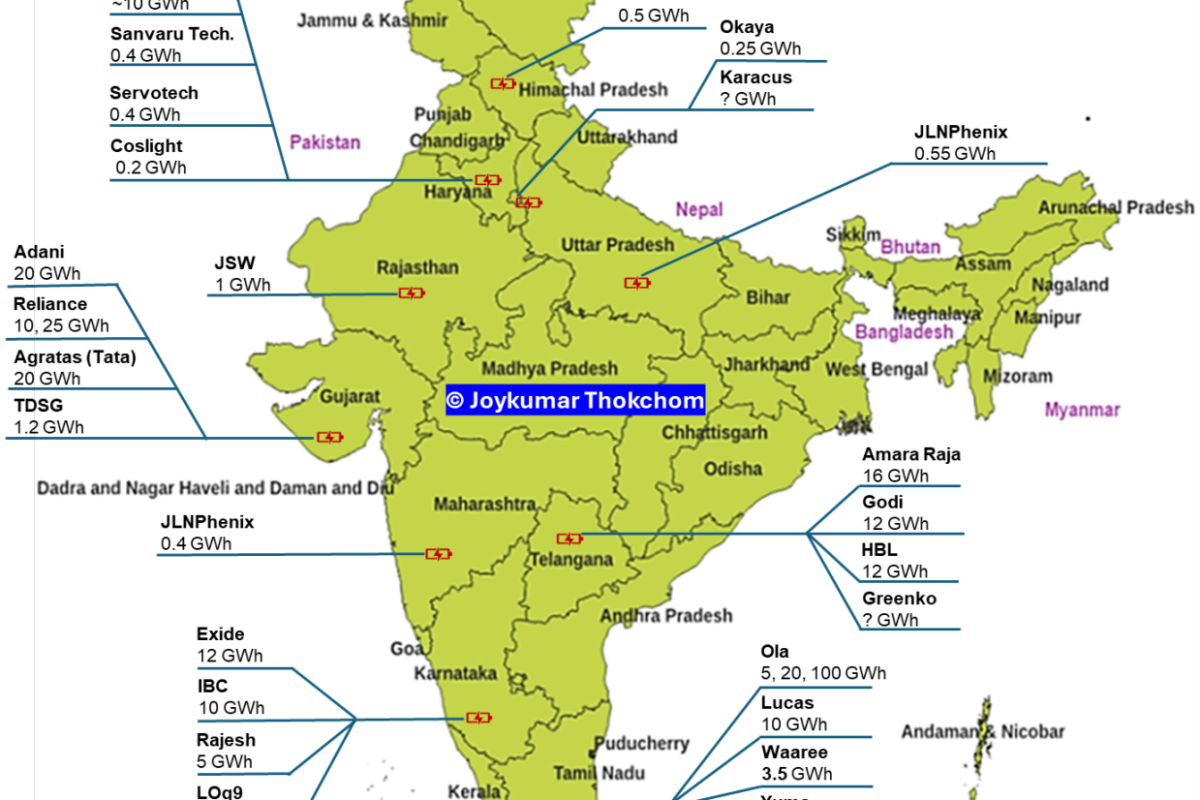


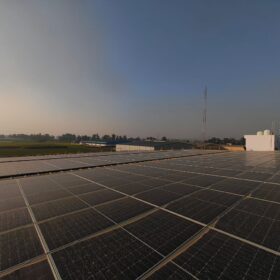
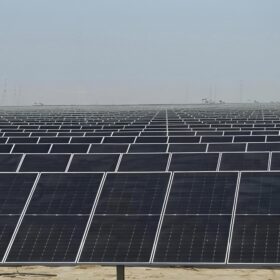
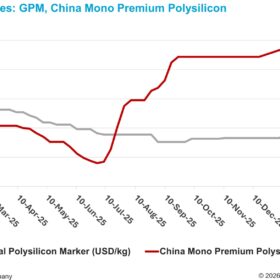
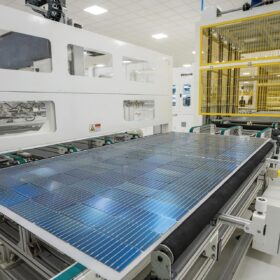
Energy Storage of Solar Electricity entails Storage of Electrons generated in the Day for use at Night (After Sunset to SunRise ). However… we use Electro-Chemical-Mechanical (ECM) Processes to do this. We convert a “Higher level” Energy to a “Lower one and then Re-Convert using massive amount of materials in the process. Some basic information is given below:
• 1 gm ~1.098X 10^27 electrons
• 1ev = 4.45 X 10^-23 Whr
1ev(1KV) = 4.45 X 10^-20 Whr
1Whr = 2.2 X 10^19 el(1kV)
• 1,000 TWhr = 1 X 10^15 Whr
= 1 X 10^15 X 2.2 X 10^19el(1kV)
= 2.2 X 10^34 el(1KV)
= 2.2 X 10^34/(1.098 X 10^27) gm
= 2 X 10^7 gm = 20 Tons….
ONLY 20 TONS OF ELECTRONS NEED TO BE STORED FOR GLOBAL ENERGY STORAGE NEED OF 1,000TWhr.
If one compares this to the weight of the GLOBAL (ECM) Energy Storage Facilities; it is clear there MUST BE A BETTER WAY…
Direct Energy Storage… by some means (???) …. is needed so one does not need Billions… maybe Trillions of Tons of Materials to store just….. 20Tons of Electrons….
(There could be an error in the calculations…. but end conclusion will still be the same).